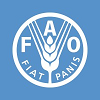Sustainable Agriculture Extension Promoter
Project Description
As the impacts of climate change become more evident, the social, economic, and environmental context within which smallholder farmers seek to maintain and improve their livelihood and support their families will continue to change.
This will add significantly to the challenges of smallholder farming, particularly for the most disadvantaged communities.
As a Peace Corps Volunteer, you will be trained to use a participatory approach and tools to identify locally determined priorities and conditions, including those related to the impacts of climate change.
The types of interventions undertaken will be guided by national and local priorities for climate change adaptation as identified in your country’s National Adaptation Plan (NAP) and those environment-related Sustainable Development Goals (SDGs 6, 12, 13, 14 & 15) that have been identified for local action.
As an Agricultural Volunteer, you will be trained to use this local knowledge in engaging smallholder farmers in a climate-smart approach that :
- promotes the adoption of improved, appropriate, and adaptive agricultural practices and technologies that sustainably increase productivity;
- builds and strengthens household resilience by integrating and diversifying existing and new agriculture-related income-generating opportunities;
- reduces greenhouse gas emissions attributable to ineffective and carbon intensive farming practices and encourages adoption of agricultural practices and activities that sequester carbon and
- strengthen the ability of vulnerable households and communities to respond to extreme weather events such as cyclones, hurricanes, and typhoons in their agricultural production.
Panama is commonly referred to as puente del mundo, corazón del universo (bridge of the world, heart of the universe), and is a land of mixed realities.
Its strategic geographic location influenced the construction of the canal, which accelerated immigration and contributed to Panama’s diverse population.
Panama is an international logistics, banking, and tourism hub. For this and other reasons, the isthmus holds distinct social and economic realities which impact structural inequalities.
Some communities in rural Panama are mainly comprised of subsistence-based farming families. Land degradation, limited access to resources, high production costs and low yields affect the production of high quality, nutritious food as well as a sustainable income.
To mitigate these agricultural challenges, Volunteers in the Sustainable Agriculture Systems (SAS) program collaborate with small-holder rural farmers men, women, youth, and children to improve their food security and the resiliency and sustainability of their livelihoods.
A typical day might involve hiking several hours through the jungle to visit a farm and observe a new bicho (bug) that is eating the crops, mixing up a compost pile at the local school out of chopped banana plants and cow manure, trying out a new recipe with a woman’s group over a three-stone fire, or adding up farm costs with a family in a notebook as everyone tells stories at the end of the day.
Volunteers integrate into the community, applying the skills and competencies practiced during Pre-Service Training. Volunteers and work partners collaborate to identify and prioritize local needs, as well as co-plan strategies to address them.
Part of this process involves identifying work partners, including model farmers, local host country ministry technicians, and community leaders.
Interaction might be one-on-one, as when working alongside a farmer in her kitchen garden, or in a group setting, as when co-teaching with a model farmer about better fertilization practices to the local coffee producers’ association.
Volunteers support their work partners in addressing agriculture production issues such as soil conservation, integrated pest management, or post-harvest management.
For farmers exploring new income-generating activities, Volunteers may support them in growing cash crops such as vegetables or coffee or producing artisanal goods from local materials.
Volunteers, in collaboration with work partners, address business topics such as budgeting or marketing to support these endeavors.
Volunteers also support community-based groups to assess their own organizational capacity and co-create plans for improvement, coaching members on topics including strategic planning, communication, and leadership.
Volunteers work alongside key household members to improve understanding of the importance of a diverse diet. This is done by introducing recipes from a nutritional standpoint and promoting healthy foods, particularly lesser-known agricultural or traditional crops.
During service, Peace Corps Panama provides learning experiences to strengthen Volunteers’ general and technical competencies, such as sustainable agriculture techniques, basic business skills, nutritional information, and organizational management.
Volunteers are expected to self-assess and self-evaluate the development of these competencies. This will positively impact the Volunteer’s experience and service to the community.
The most important resource Volunteers need to be successful is the ability to communicate ideas clearly and to develop strong interpersonal relationships.
Creativity in using locally available resources is also important. Volunteers must be prepared to be proactive, self-driven and to motivate others.
Climate Change Activities
As the impacts of climate change become ever more evident, the social, economic, and environmental context within which smallholder farmers seek to maintain and improve their livelihood and support their families will continue to change.
This will add significantly to the challenges of smallholder farming, particularly for the most disadvantaged communities.
As a Peace Corps Volunteer, you will be trained to use a participatory approach and tools to identify locally determined priorities and conditions, including those related to the impacts of climate change.
As an Agriculture Volunteer, you will be trained to use this local knowledge in engaging smallholder farmers in a climate-smart approach that :
- promotes the adoption of improved, appropriate, and adaptive agricultural practices and technologies that sustainably increase productivity;
- builds and strengthens household resilience by integrating and diversifying existing and new agriculture-related income-generating opportunities; and
- reduces greenhouse gas emissions attributable to ineffective and carbon intensive farming practices and encourages adoption of agricultural practices and activities that sequester carbon.
COVID-19 Volunteer Activities
As a Volunteer, you will be trained in how to best protect yourself from COVID-19 exposure and understand the impact of and steps to reduce stigma related to COVID-19.
You may also have the opportunity to engage with your community on implementing or enhancing COVID-19 mitigation activities, such as COVID-19 prevention and risk reduction strategies including social distancing, hand washing, mask wearing, addressing myths and misconceptions related to these practices, and vaccine hesitancy.
Activities will be tailored to address the COVID-19 circumstances in the communities where you will serve.
Required Skills
Qualified candidates will have an expressed interest in working in agriculture and one or more of the following criteria :
- Bachelor of Arts / Bachelor of Science degree in any field
- 5 years' professional work experience
Desired Skills
Competitive candidates will have one or more of the following criteria :
- Bachelor of Science degree or Associate degree in Agronomy, Horticulture, or other related fields
- Bachelor of Arts / Bachelor of Science degree in any business discipline, 5 years professional experience in business management
- At least 3 years full-time farm experience
- Familiarity / experience with agriculture, gardens, and / or farm work
- Experience in leading through collaboration
- Experience teaching adults and children formally and informally
- Experience with public speaking or facilitating classes / workshops / presentations
Required Language Skills
Candidates must meet one or more of the language requirements below in order to be considered for this position.
A. Completed 4 years of high school Spanish coursework within the past 8 years
B. Completed minimum 2 semesters of Spanish college level coursework within the past 6 years
C. Native / fluent speaker of Spanish
Candidates who do not meet the language proficiency levels above can take the language placement exams to demonstrate their level of proficiency.
Competitive applicants typically attain a score of 50 on the Spanish College Level Examination Program CLEP exam or a score of Novice High on the American Council on the Teaching of Foreign Languages (ACTFL OPI).
Pre-Service Training (PST) will have an emphasis on language acquisition through structured and unstructured language-building learning experiences, while also focusing on strengthening intercultural competence.
These critical skills will help create a foundation to successfully serve as a Peace Corps Volunteer in Panama. The technical knowledge and skills that Trainees arrive with and / or gain during training will not be effective if Trainees do not have the necessary communication and intercultural skills.
Trainees are assigned to a Language and Culture Facilitator (LCF) who will facilitate the resources and opportunities needed to build language competence.
Trainees receive three Language Proficiency Interviews (LPI) during PST. By the final LPI Trainees are required to achieve a Mid-Intermediate level of Spanish as outlined by ACTFL Guidelines to qualify for service.
Intermediate-mid level speakers are expected to be able to start, sustain, and close simple conversations at the sentence level and connect them.
Additionally, they can ask and answer simple questions. LCFs support Trainees to achieve the required level as Trainees adapt to a new method of language-learning.
They will persistently challenge Trainees to speak out loud, make mistakes, and converse and build relationships with native speakers, such as members of your host training community.
LCFs are also be an important cultural informant and guide as Trainees adapt to the local culture.
Volunteers placed in the Ngӓbe-Buglé region receive some formal training on basic Ngäbere and will need to continue to learn the language on their own in their community.
Having an interest in a deeper study of local language in the form of continuous self-study and in-community conversations is a way for you to work more directly with community members.
Ngäbere is a spoken language with limited written materials.
Living Conditions
Volunteers are placed in indigenous and non-indigenous communities. Traveling to and from a Volunteers community may require a 30 45-minute walk.
Houses in Panama vary among communities and may include simple concrete block walls and cement floors; stilted wood houses;
adobe structures with mud floors; and / or furnished apartments. Communities generally have basic utilities and infrastructure, including cell phone signal, treatable water, and sometimes electricity.
The reliability of these services varies from community to community; and may be impacted by seasonal changes. All Volunteers receive training on how to treat their drinking water should they need to.
Solar panels and other means to charge or run electronics can be acquired in Panama. Many homes have a simple pit latrine.
Peace Corps Panama assesses each community before selection to ensure that basic health and safety criteria are met. Volunteers live with a host family during pre-service training and may live with a host family during their first three months of service.
After three months, Volunteers may opt to live in pre-approved local housing that meets Peace Corps Panama’s housing criteria.
Food and Diet
The Panamanian diet varies according to the region and the ethnic makeup of the population. Most often the diet consists of rice, beans, bananas or plantains, yucca (cassava), and corn.
Rice and beans (kidney beans, lentils, and pigeon peas) is a staple dish. Corn is commonly served in a variety of ways, including ground, boiled, or fried.
Sancocho is a traditional soup prepared with root vegetables and chicken. Most rural areas have fruits available in certain seasons, including mangos, papayas, pineapples, avocados, oranges, and guanábanas (soursop).
The availability of garden vegetables, such as tomatoes, sweet peppers, and cucumbers, varies according to the region and the season.
The most common meats are chicken, pork, and beef, which are often deep-fried or stewed. Fish is available sporadically in coastal regions and riverside communities.
Panamanians frequently follow diets based on their region, culture, and seasonally available produce. Depending on the Volunteer’s diet, they may be inclined to start a garden, plan for trips to larger cities to acquire products at supermarkets or adjust to locally available options.
Larger towns and cities have at least one familiar chain restaurant.
Computer, Phone, and Internet Access
Host communities generally have reliable cell phone signal, though it might be up to a 30minute walk to reach. Volunteers assigned to communities with poor communication connectivity will be assigned satellite phones for emergency purposes.
The availability of internet access (Wi-Fi) will vary in speed and reliability depending on the geographic location of the community.
Volunteers may access Wi-Fi through the local public school, visit a community internet center, or visit a private internet cafe in a larger town.
In Panama City, Volunteers have access to Wi-Fi, desktop computers and printers at the Peace Corps Panama office. Peace Corps Panama does not provide Volunteers with a cell phone or data plan but does provide all Volunteers with a SIM card on arrival.
Many cheap data plans are available in Panama. Many Volunteers bring an unlocked cell phone from the United States or buy one in country.
Should Volunteers choose to bring electronics, it is the Volunteers responsibility to maintain and insure them. Be aware that service providers in Panama do not fully support phones with eSIMs or will charge extra, which will be at the Volunteers expense.
Also, currently serving Volunteers have reported that newer iPhone models have difficulties connecting to local phone and data signals, causing them to purchase another phone model.
Serving in Panama
Learn more about the : Get detailed information on culture, communications, housing, health, and safety including health and crime statistics in order to make a well-informed decision about serving.
Couples Information
Peace Corps Panama cannot accommodate cross-sector couples. Therefore, your partner must apply and qualify for the following positions : Sustainable Agriculture Extension Promoter or Business Advising Agriculture Promoter.
During Pre-Service Training, couples live in the same home and are requested to speak Spanish with each other and the host family to improve language learning.
During their service, they will live together, sometimes for three months with a host family and then on their own, or directly into private accommodations.
Couples will be placed in medium to large communities, to ensure sufficient work is available for both Volunteers.
The Peace Corps works to foster safe and productive assignments for same-sex couples, and same-sex couples are not placed in countries where homosexual acts are criminalized.
Because of this, same-sex couple placements are more limited than heterosexual couple placements. During the application process recruiters and placement officers work closely with same-sex couple applicants to understand current placement opportunities.
For more information please visit : https : / / www.peacecorps.gov / faqs / lgbtq / .
Medical Considerations
Before you apply, please review Medical Information for Applicants to learn about the medical clearance process.


